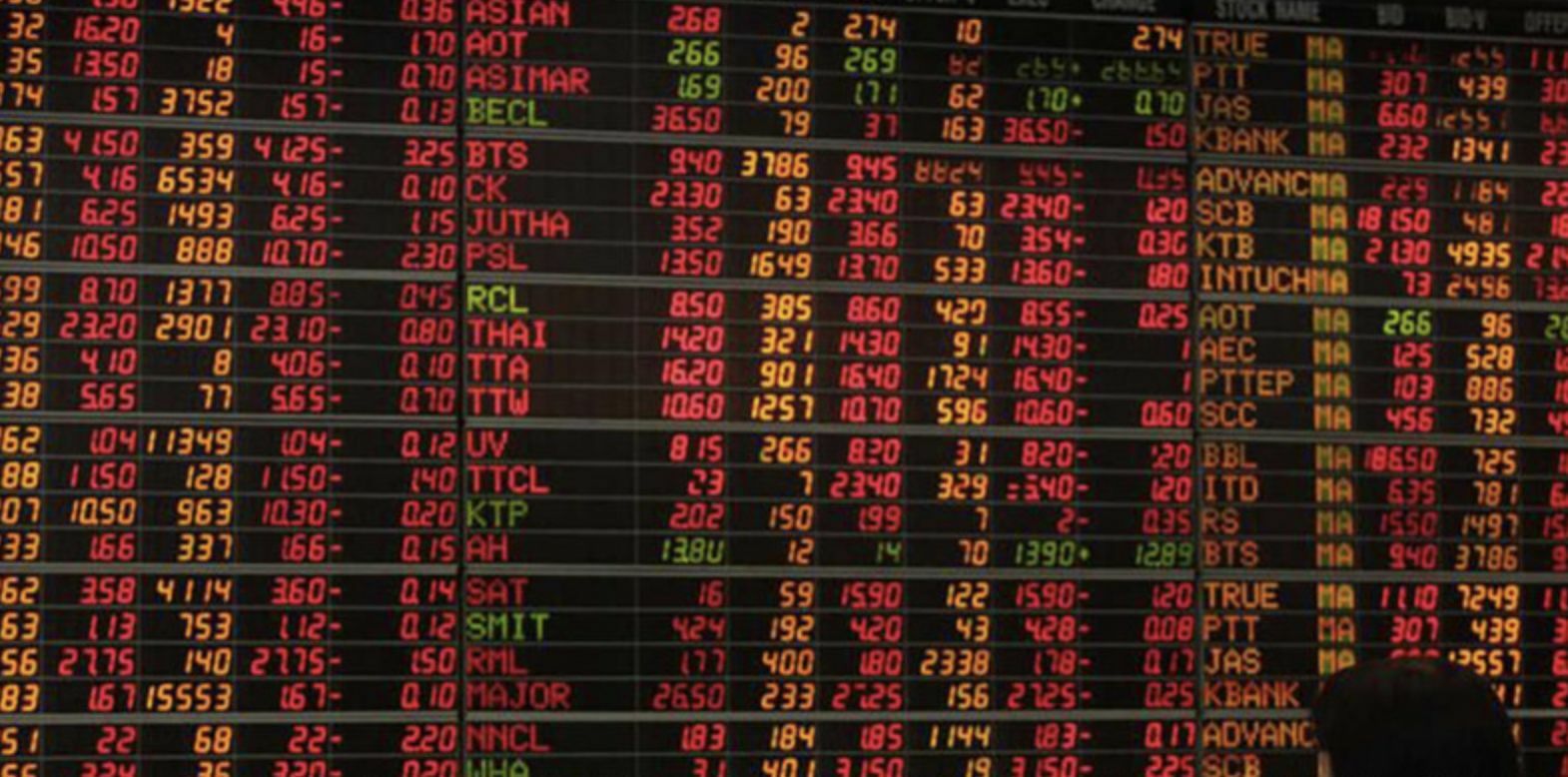Stock slide stalls: Thai stock market slump set to stabilise as analysts predict limited decreases

The Stock Exchange of Thailand (SET) index has been subjected to a downward revision this year, dipping to a three-month low of roughly 1,470 points. This has led market analysts to believe that further decreases are now limited.
Kasikorn Securities (KSEC) consequently altered its SET index target to 1,544 points by the close of 2023, a significant drop from the initially projected 1,666 points. The revision is a reflection of KSEC’s cautious stance on the rise in bond yields predicted to negatively impact the price-to-earnings ratio of the Thai stock exchange.
Inflationary pressure from elevated oil prices and a larger government budget deficit to support economic stimulus measures, which will result in higher bond supply, will likely drive Thailand’s interest rates to continue to climb, KSEC explained.
KGI Securities (Thailand) reported a significant 6% monthly drop in the SET index in September, with an 11.8% decrease year-to-date. This contradicts the earlier expectations of extended upward market momentum following the establishment of a new government.
Rakpong Chaisuparakul, the Senior Vice-President, noted that the country’s stock market performance in the previous month was much weaker than anticipated.
Negative external influences, such as a steep incline in US treasury yields and the dollar index due to strong US economic data coupled with hawkish guidance from Federal Reserve officials, have pressured the bourse.
Fiscal discipline
Domestically, concerns over Thailand’s fiscal discipline and credit rating are growing as the Cabinet struggles to establish a funding plan for the 560-billion-baht digital wallet stimulus.
Rakpong Chaisuparakul stated that these issues have caused a significant depreciation in the baht and triggered foreign equity outflows.
In the short term, the SET index trend is expected to continue downward due to a combination of factors, including the possibility of stronger US economic data in the fourth quarter compared to Europe. However, Rakpong Chaisuparakul believes that the market’s significant drop in September limits further decrease in prices.
KGI analyst Suchot Tirawannarat foresees a low return on stock investment in the coming 1-2 months. He advises risk-averse investors to lower their equity investments upon stock price rebound and to adopt a ‘wait and see’ approach.
Meanwhile, Asia Plus Securities (ASPS) commented on the dullness of the SET index when bourse liquidity is low. As per a research note by ASPS, SET liquidity weakened due to thin trading value in big-cap stocks and lower turnover, especially for SET50 stocks. As liquidity drops, the SET index will fall with thinner trading.
Despite this, ASPS remains optimistic, predicting a market rebound once negative factors subside. Factors such as high-interest rates slowing down inflation, easing oil prices, and China’s economy gradually recovering due to economic stimulus measures since late July are expected to aid the recovery.
The SET index has limited downside and will probably rebound in the fourth quarter as there are many positive technical signs, ASPS predicted on Monday, Bangkok Post reported.
Follow more of The Thaiger’s latest stories on our new Facebook page HERE.
Latest Thailand News
Follow The Thaiger on Google News:


























